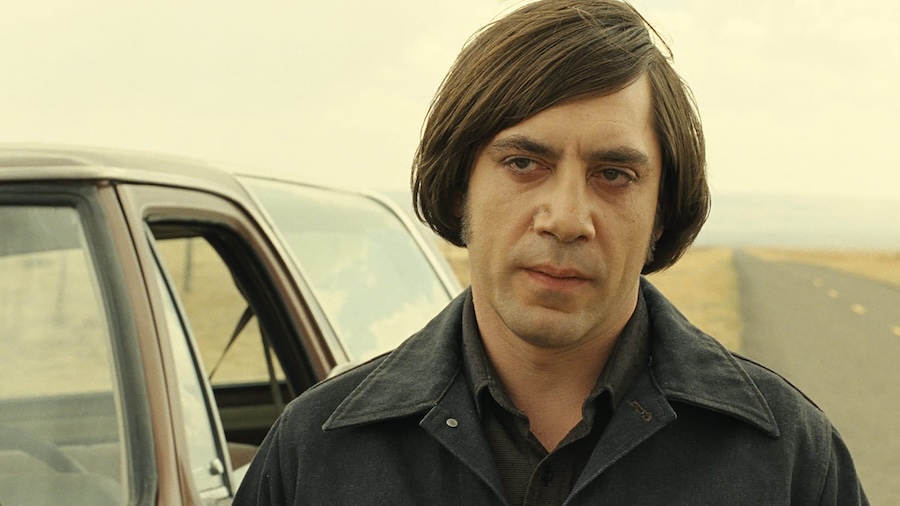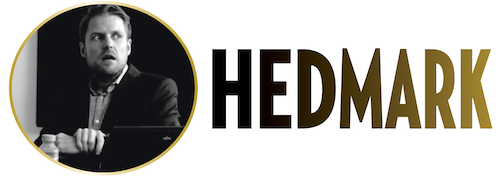
THERE ARE NO CLEAN GETAWAYS.

When I started reading Cormac McCarthy’s “The Road”, it took a while before I was hooked, until the author’s way of conjuring a desolate, bleak future affected me. In this film, which is based on one of McCarthy’s books, cinematographer Roger Deakins captures the stark beauty of a wild and vast land about to change. It is indeed the cinematic equivalence of McCarthy’s prose. Thrilling and well acted, many viewers were nevertheless disappointed in the ingredients that define No Country for Old Men as a McCarthy story.
A grisly scene in the middle of the desert
The year is 1980 and we’re in Texas. An unemployed Vietnam War veteran, Llewelyn Moss (Josh Brolin), comes across a grisly scene in the middle of the desert. Several people lie there dead after a shootout; there’s also a big stack of heroin and cash. Moss takes the money and leaves but makes the mistake of coming back to the scene in the middle of the night. He runs into a group of drug-runners and narrowly escapes death, but because of his car the bad guys are able to identify him. Moss is a bright and resourceful man who quickly hides away his girlfriend and goes on the lam, meticulously preparing for the eventuality that someone could track him down.
They do. A psychopathic hired gun named Anton Chigurh (Javier Bardem) who has a habit of using a captive bolt pistol to kill people (and open locks) is on Moss’s trail; the war veteran doesn’t realize that a transmitter is hidden inside the bag of money he found in the desert. Meanwhile, sheriff Ed Tom Bell (Tommy Lee Jones) begins to figure out what is going on.
Bloody, violent and compelling
Chigurh’s hunt for Moss is eerie in the way that he seems unstoppable; this killer has no mercy whatsoever. Moss is no easy victim either; he knows how to defend himself and avoid the enemy. Their battle is bloody, violent and compelling. The Coen brothers have never made a movie this tense, but they sure have a knack for it. A convincing performance by Brolin, and Bardem is unforgettable; sporting a very strange hairdo and eyes that stare straight through you, his performance is akin to that of Anthony Hopkins’s in The Silence of the Lambs (1991).
Woody Harrelson has a brief but amusing supporting part and Jones is excellent as the sheriff; professional, earnest and weary, he becomes the symbol of the film’s hotly debated other half, echoing the old West. Ed hates to see what has happened to Texas lately, but knows there will be more blood. The first scene has him contemplating how things have changed since he was a kid and the last scene has him telling his wife about a dream he had last night. It’s an abrupt ending, and many hated it, but it’s possible that too many in the audience saw the film as a simple genre exercise; they were too enthralled by the exciting battle between Chigurh and Moss to fully appreciate the underlying themes.
At heart, this really is a somewhat conservative film about a time and place about to change.
No Country for Old Men is part thriller, part meditation on a specific era that McCarthy has chosen as critical. At heart, this really is a somewhat conservative film about a time and place about to change – and fast. Many of those changes were indeed negative, but open-minded viewers will also disagree with the film’s old-timers who complain freely about everything new. It’s a timelessly relevant debate that adds to and lifts what would otherwise be perhaps merely an entertaining thriller far out of the ordinary.
It’s possible to view this Coen enterprise as a companion piece to their Fargo (1996), especially in the depiction of the police. Some fans will object to its mournful tone, but this stands as one of the brothers’ most impressive features.
No Country for Old Men 2007-U.S. 122 min. Color. Widescreen. Written, directed and edited by Joel Coen, Ethan Coen. Novel: Cormac McCarthy. Cinematography: Roger Deakins. Cast: Tommy Lee Jones (Ed Tom Bell), Javier Bardem (Anton Chigurh), Josh Brolin (Llewelyn Moss), Woody Harrelson, Kelly Macdonald, Garret Dillahunt.
Trivia: Co-produced by the Coen brothers, who also edited the film under the pseudonym “Roderick Jaynes”. Heath Ledger was considered for the part of Llewelyn; Mark Strong was a candidate to play Chigurh.
Oscars: Best Picture, Director, Supporting Actor (Bardem), Adapted Screenplay. BAFTA: Best Director, Supporting Actor (Bardem), Cinematography. Golden Globes: Best Supporting Actor (Bardem), Screenplay.
Last word: “The look [on Bardem], actually the feeling of the wardrobe and the haircut came from, the art department does a lot of research, mainly photo research, because it’s a period thing, although a recent period, it’s 1980 Texas border area. So they don’t just kind of make it up from scratch. They look at archive pictures of the time and place. And the wardrobe department had found this picture of a guy at a bar in West Texas in 1979 and it was that alarming haircut and actually that kind of wardrobe as well. And we looked at it and thought, well, he looks like a sociopath. And Javier really enjoyed it as well.” (Ethan Coen, Collider)
